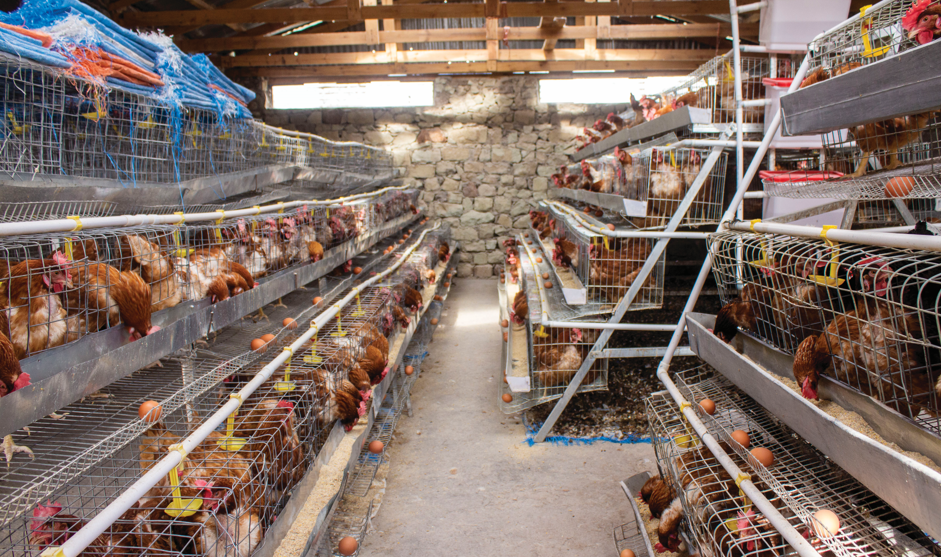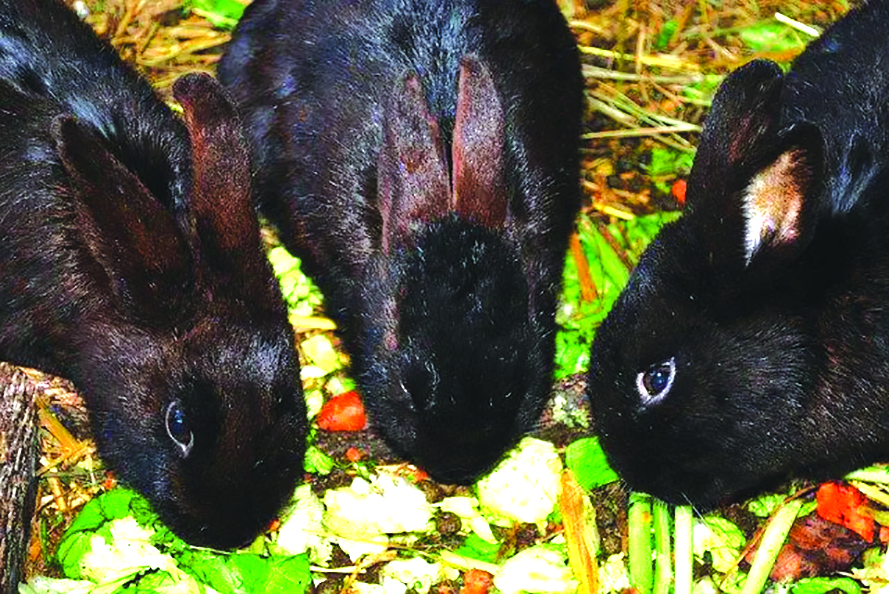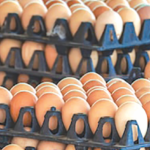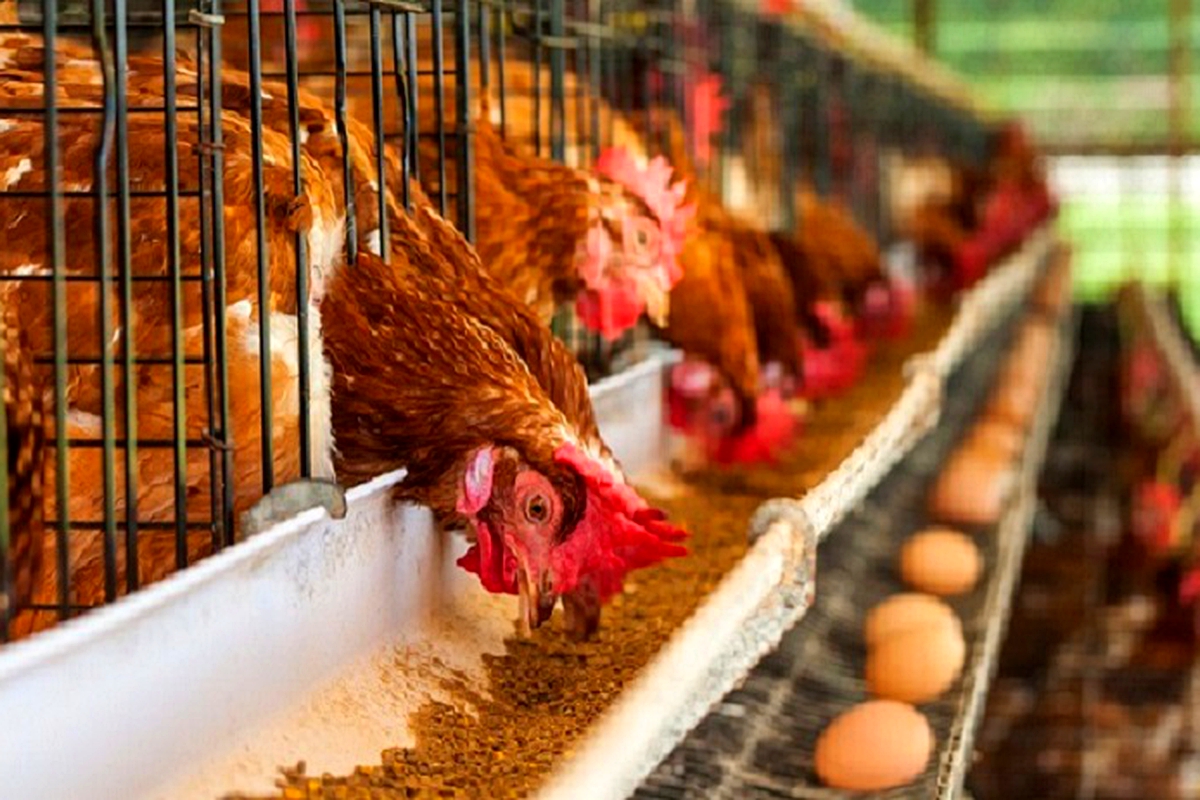Tšele Mohoshela, a farmer and founder of Merino Holdings in Thaba-Tseka, is among those immediately affected by the United States’ decision to withdraw funding from development initiatives in Lesotho.
Mohoshela, who rears sheep, dairy cows, and poultry for both meat and egg production, is now grappling with the sudden loss of his primary market for eggs.
He ventured into egg production after local farmers were assured, through the home-grown school feeding initiative, that they would have a sustainable and reliable market. His farm’s strategic location, directly opposite Paray Primary School in Thaba-Tseka, reinforced his confidence in the programme’s long-term stability.
“For a few months, until June, I think that was when the initiative was tested, the school used to get fresh eggs from me conveniently next to them,” Mohoshela told reporters. “We were just left stranded, no communication, nothing. It just happened that the school stopped getting the eggs,” he said.
The abrupt halt has left him with a massive surplus of unsold eggs. In desperation, Mohoshela is considering mixing the excess eggs into livestock feed to see if his animals will eat them.
“I have incurred a huge loss because there is a pile of eggs that I have nowhere to take. It means they are just going to spoil,” he lamented.
Previously, Mohoshela supplied the school with 28 trays of eggs each week, sold at M55 per tray. Now, facing mounting losses, he has made the difficult decision to slaughter his chickens and sell the meat, vowing not to raise another batch.
The cessation of purchases is directly linked to the withdrawal of the implementing partner, Catholic Relief Services (CRS), following the U.S. government’s abrupt funding cut. The Bokamoso ba Bana programme, funded by the United States Department of Agriculture (USDA) to the tune of $28.5 million (over M511 million) over five years, collapsed earlier this year when the USDA halted its support.
“This week’s abrupt termination of CRS’ McGovern-Dole Food for Education school feeding programme will deprive school-age children of their only reliable meal each day. Beginning in July, more than 780,000 children across 11 countries will be left without their school meals, as 11 out of CRS’ 13 projects have been terminated – deepening the crises of hunger, malnutrition and poverty that already threaten their ability to learn, grow, and thrive,” CRS said in a statement on May 21, 2025.
“CRS has implemented school feeding programmes around the world for many decades. In 2024, evaluations of our work highlighted increased literacy rates, economic growth, and reduced absences due to hunger and illness. Funded by the U.S. Department of Agriculture, CRS worked with governments and communities to sustain school meal programmes and improve education quality,” the organisation added.
In an interview, Thuto Ntšekhe, Chief Education Officer for Primary Education, confirmed that CRS had been the implementing partner for the home-grown school feeding pilot project in Semonkong, Thaba-Tseka, and Mokhotlong districts.
“The implementing partner of the home-grown school feeding pilot has withdrawn,” she said.
The sudden departure of CRS, Ntšekhe explained, presents a major learning challenge for the government. While the Ministry of Education remains committed to continuing the initiative, she admitted that without CRS’ technical presence, “we will not be able to learn to the fullest how best to take over and implement the initiative nationwide.” A handover meeting is being planned to discuss the way forward.
Currently, Lesotho’s national school feeding programme provides meals to more than 282,000 children in public reception and primary schools, as well as 50,000 children in early childhood care and development (ECCD) centres.
While the United States Agency for International Development (USAID) previously supported about 36,000 children, the recent funding cut has begun to affect operations.
“The impact is that there is no money coming from USAID,” Ntšekhe stated. However, she noted that children are still receiving meals for now because food supplies were already in place before the funding withdrawal. The Ministry of Finance is currently stepping in to sustain the programme, including paying cooks.
Beyond the funding challenge, the home-grown school feeding initiative has long faced logistical obstacles, especially in Lesotho’s mountainous and hard-to-reach areas.
According to the ministry’s guiding menu, schools are expected to serve fresh vegetables and eggs, but this remains a challenge. “It is a problem to get them for remote primary schools,” Ntšekhe explained, citing long distances and poor transportation that often result in cracked eggs and spoiled vegetables.
She called for stronger collaboration between ministries, particularly the Ministry of Agriculture, Food Security and Marketing, to better support smallholder farmers and ensure consistent local supply.
Ntšekhe believes that empowering local communities to produce fresh food near schools would boost local economies while ensuring programme sustainability.
“We just want someone who will be reliable and provide quality products consistently,” she asserted.
Summary
- “For a few months, until June, I think that was when the initiative was tested, the school used to get fresh eggs from me conveniently next to them,” Mohoshela told reporters.
- Beginning in July, more than 780,000 children across 11 countries will be left without their school meals, as 11 out of CRS’ 13 projects have been terminated – deepening the crises of hunger, malnutrition and poverty that already threaten their ability to learn, grow, and thrive,” CRS said in a statement on May 21, 2025.
- While the Ministry of Education remains committed to continuing the initiative, she admitted that without CRS’ technical presence, “we will not be able to learn to the fullest how best to take over and implement the initiative nationwide.

Ntsoaki Motaung is an award-winning health journalist from Lesotho, specializing in community health stories with a focus on sexual and reproductive health and rights, as well as HIV. She has contributed to platforms like “Be in the KNOW,” highlighting issues such as the exclusion of people with disabilities from HIV prevention efforts in Lesotho.
In addition to her journalism, Ntsoaki serves as the Country Coordinator for the Regional Media Action Plan Support Network (REMAPSEN). She is also a 2023 CPHIA Journalism Fellow.










